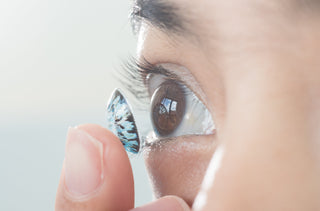In the quest for optimal vision and lasting eye health, many people turn to supplements and vitamins. But the question remains: are they really necessary?
Essential eye nutrients
Eye health depends on several key nutrients, including vitamins A, C, E, omega-3s, zinc and antioxidants.
These nutrients protect against oxidative damage, reduce the risk of eye diseases such as age-related macular degeneration (AMD) and cataracts, and maintain sharp vision.
Balanced diet vs. supplements
A balanced diet rich in fruits, vegetables, fatty fish and other nutritious foods can often provide the nutrients needed for eye health. Supplements can be helpful for those with nutritional deficiencies or specific needs, but they should not replace a healthy diet.
Vitamin A and vision
Vitamin A is essential for healthy vision, including the production of rhodopsin, a pigment needed for night vision. Sources of vitamin A include carrots, sweet potatoes, liver and certain dairy products.
Omega-3s and antioxidants
Omega-3 fatty acids in oily fish such as salmon and flaxseed can reduce inflammation and contribute to eye health.
Antioxidants, such as vitamins C and E, and flavonoids in berries and citrus fruits help protect eye cells from free-radical damage.
It's important and prudent to consult your optometrist or healthcare professional before starting any supplement regimen.
While supplements and vitamins can play an important role in eye health, a balanced diet remains the cornerstone of optimal vision. By incorporating foods rich in essential nutrients and consulting a health professional regularly, you can take effective steps to keep your eyes healthy for the long term.





















































